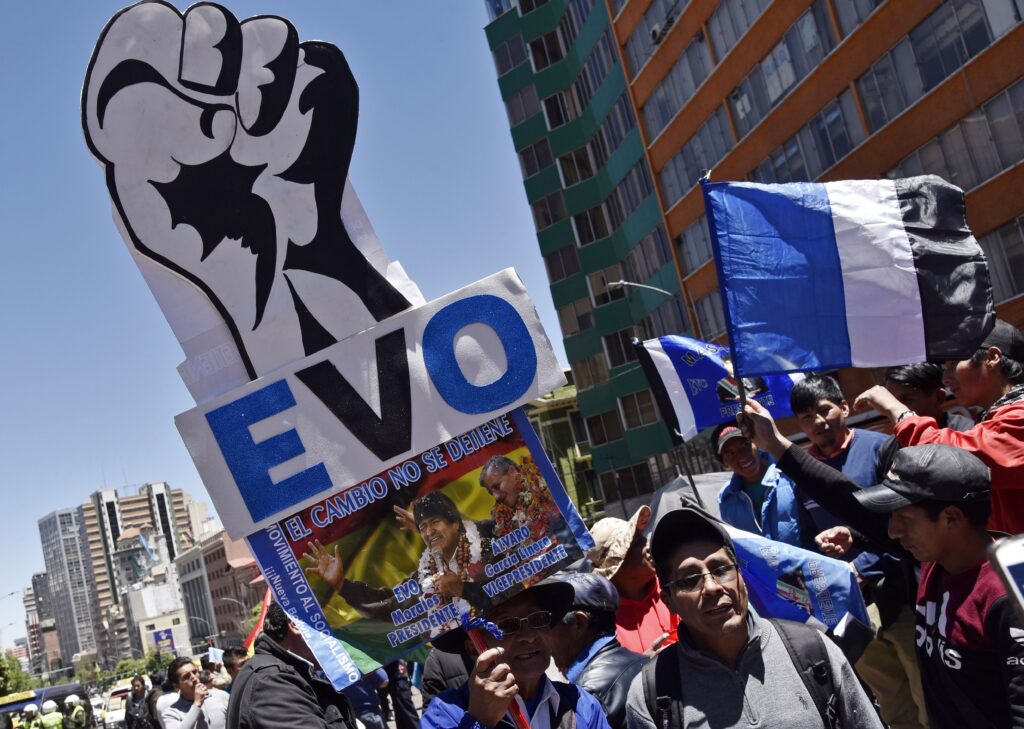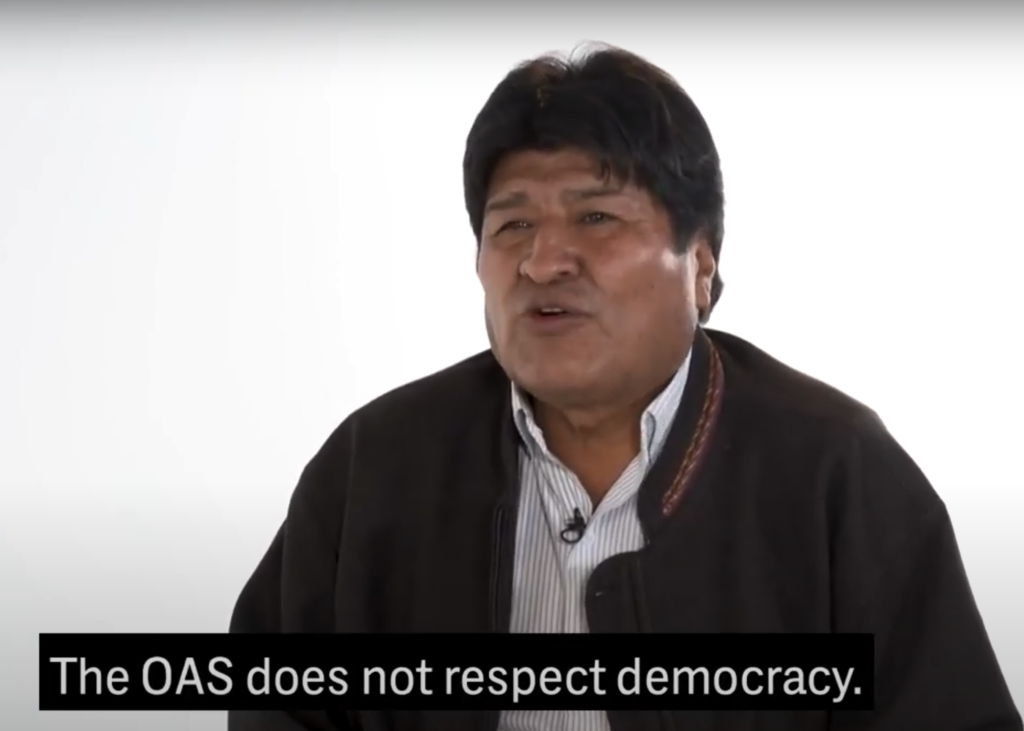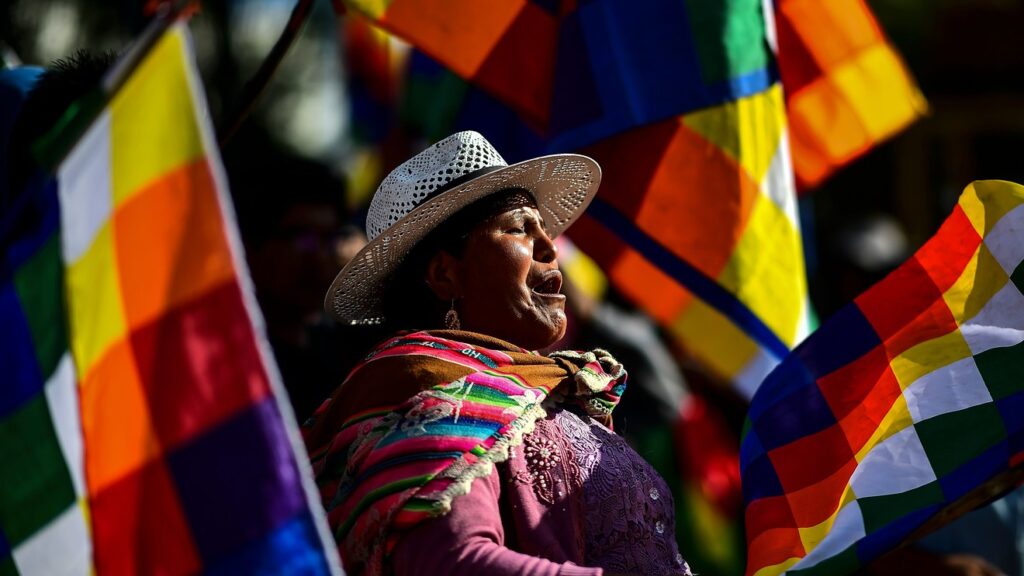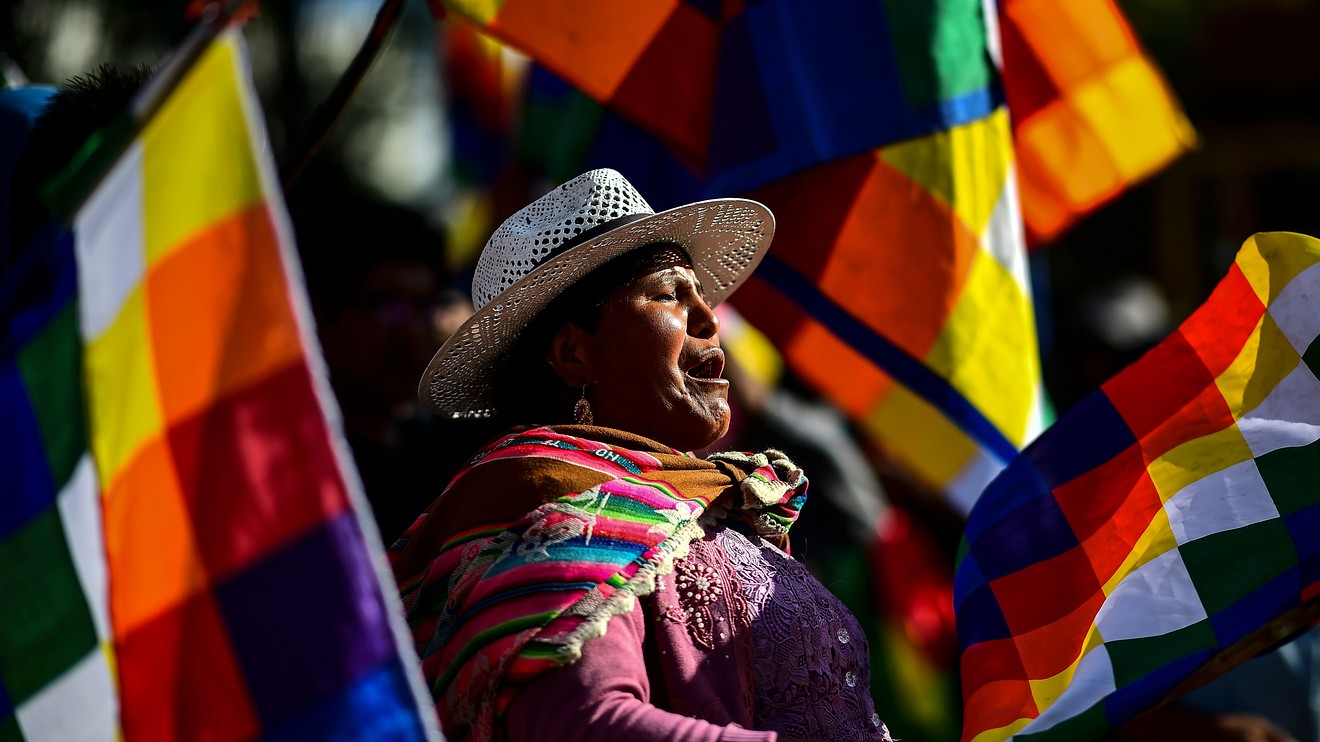In November 2019, under claims of election interference and the threat of a military coup, Bolivian President Evo Morales resigned from office and fled his country.
The removal of President Morales from office came after weeks of both domestic and external scrutiny over the results of the general election. After a tense campaign – the closest election that Morales had been in his previous three terms – Morales was certified the winner. He had won over 40% of the popular vote and was sufficiently clear of his nearest opponent.
Much of the prologue that set the sequence of Morales’ exile and subsequent asylum search is mired in complex geopolitical machinations and contentious ethnic relations. But in essence, days after the election was closed, the Organization of American States released a statement claiming disqualifying irregularities, fraud, and “clear manipulation.”

The OAS is a multi-governmental institution that (ostensibly) works towards the peace and productive association of sovereign nations within North & South America. They were established in 1948 and have strong ties to United States diplomatic interests. Since the end of the Cold War, the organization has mostly facilitated auditing and oversight of elections, as well as the peaceful transition of power. This is all to underscore how a statement that indicates election fraud carries tremendous weight and brings enlarged global attention.
Before the fog of time could eclipse the election, OAS openly implicated President Morales in systematic election rigging. The election occurred on October 20 and by 10PM that night Morales had the numbers to declare himself winner. Though, less than a month later, the OAS released addition election analysis; hours later, Morales resigned as president from an airplane hanger before being forced to flee his country.
A Questionable Narrative
In the subsequent days and weeks, however, the claims of election fraud came into serious question. Chief among these rebuttals came from two independent studies: one from MIT forensic researchers (contracted by the Center for Economic and Policy Research) and the other a joint study by three Latin American professors/staticians from American universities.
In short, these studies contradicted the findings of OAS as unfounded and problematic. In retrospect, the statistics process used by OAS, as well as their final conclusions were – at best – rushed and flawed. And at worst, their findings were intentionally misleading and malicious.
Voting irregularities found by the OAS were undeniably present for the 2019 Bolivian presidential election. The election process included nefarious forgeries, non-sanctioned data servers, and multiple breakages in the chain of custody of paper ballots. All of which surely cast a cloud over the integrity of the election. As University of Miami professor and Bolivian expert Calla Hummel stated, “There was fraud — we just don’t know where and how much.”
However, what is also undeniable is that the rash actions of the OAS exacerbated local tensions and international fervor. Not even a week after the Sunday election, the OAS implied the election results were fraudulent. Manuel González, who headed the Bolivian election observation unit, further aroused local tensions by suggesting that even if Morales had past the necessary 10% run-off threshold, “given the context and the problematic issues in this electoral process the best option continues to be the convening of a second round.”
While rumors of a coup gain traction and protestors took to the streets, this statement and other communications from the OAS were disseminated without hard statistical evidence of their claims.

These irresponsible statements indirectly (or perhaps purposefully) furthered violent protests and added to the destabilization of the country. But more to the point, this gave right-wing/anti-socialist media outlets and politicians an opening to lob bad faith attacks. Both against Morales and his presidential candidacy.
Despite releasing their preliminary statement with no statistical evidence, and despite the situation being understandably fluid (as it is the case with nearly every election that is collecting votes from multiple locations), the perceived credibility of the Organization of American States allowed for the undemocratic removal of Morales. In short order, erroneous claims by the OAS instigated the unjustifiable expulsion of an elected official.
The OAS statement was hastily issued and the power of the supposedly neutral organization allowed for a duplicitous assault on not only Morales, but also the will of the Bolivian people.
Media Responsibility
The story of Morales’ resignation cannot be fully understood without recognition of the role the media played in the aforementioned events. While the OAS is certainly a powerful institution with the ability to (rightfully or wrongly) determine the validity of elections, the international news media is just as culpable for the undue removal of Morales as the OAS.
As Glenn Greenwald described in an excellent article for The Intercept, “when it came to the 2019 Bolivian coup, the U.S. media played its decades-old, standard role… Namely, it blindly and dutifully adopted the State Department’s view and uncritically waved the flag.”
As Greenwald and others alluded to, the pretext that led to Morales’ resignation include a intricate weaving of interests between supposedly non-partisan, independent actor. For brevity’s sake, this consist of the United States State Department imposing its influence on not only quasi-governmental agencies (e.g. The Organization of American States). It also includes the pulling-of-the-strings of US news outlets such as The New York Times and The Washington Post – among others. And to be clear, these news outlets are – knowingly or unknowingly – happy to parrot the talking points of American administrations.
Over the weeks and months since the 2019 Bolivian elections, multiple news outlets – both in the US and abroad – have unquestioningly supported the removal of Morales. A short list includes:
Here at Stipulation we try to provide readers with unbiased reports on noteworthy stories. We do this specifically for the reasons I have laid out above. Namely, many citizens who are in search of the truth often are met with biased, unverified, or subservient reporting from major outlets. While it is not our purview to conduct independent verification of reports, what we do offer is important, but obscured context. Additionally, and pertinent to the case of Morales, we shine a light on the reports and outlets that could be reiterating falsehoods of organizations/political apparatuses with hidden agendas.
If news media outlets had dutifully performed their non-partisan and ethical mission, perhaps Bolivia would continue its stabilized progression under the guidance of the Morales administration. Unfortunately for the people of Bolivia, they are reeling in uncertainty as their former president was deposed from office and the gains made under his term are in the sights of pernicious opportunist.

